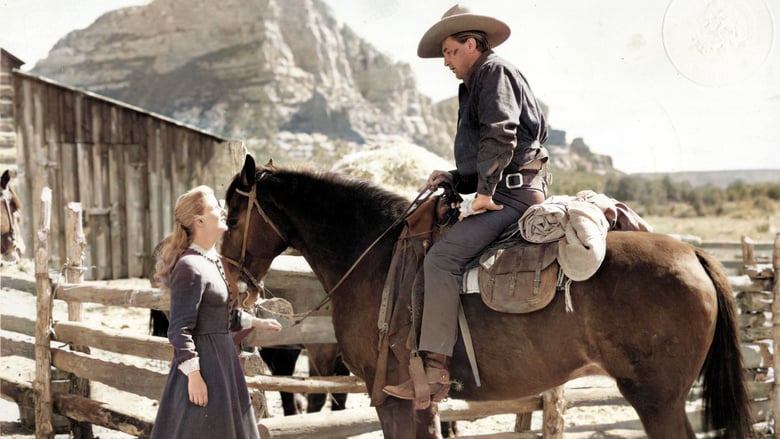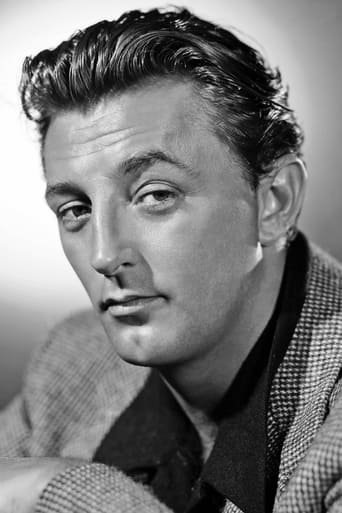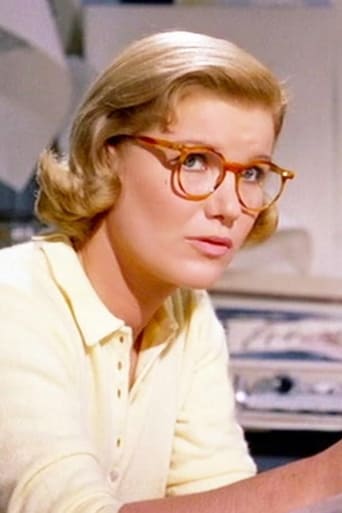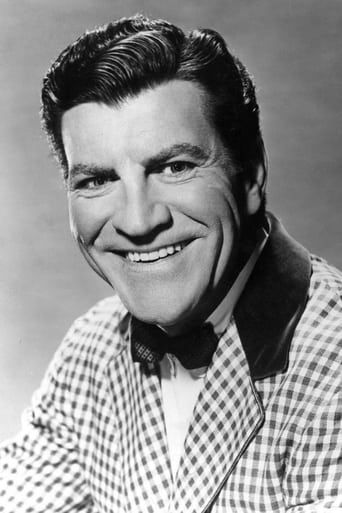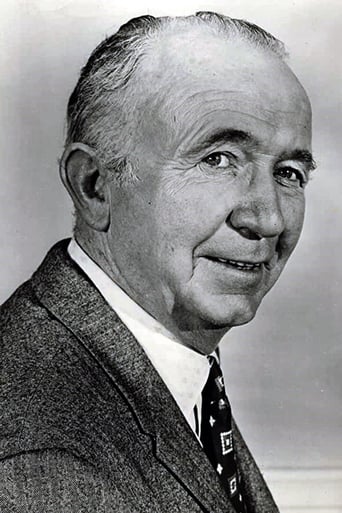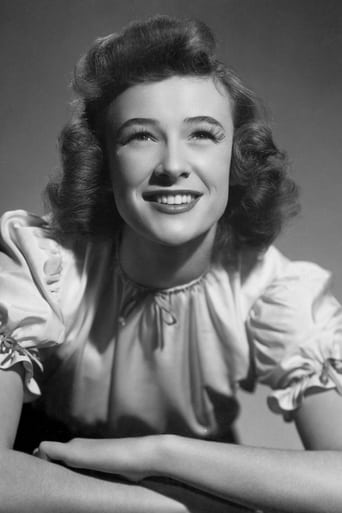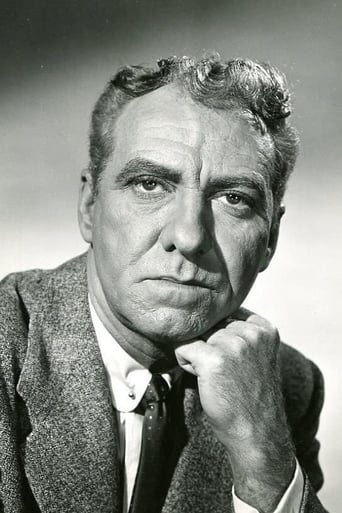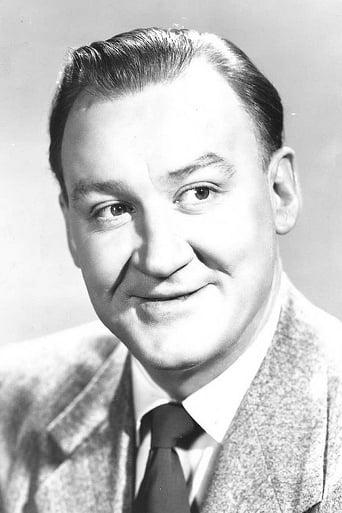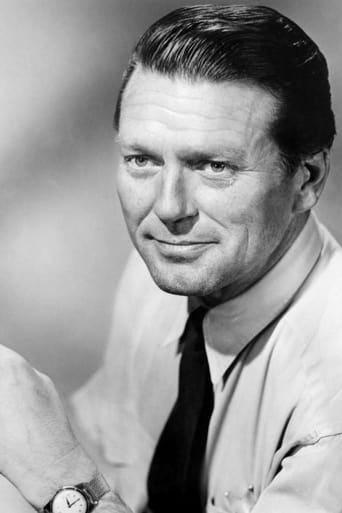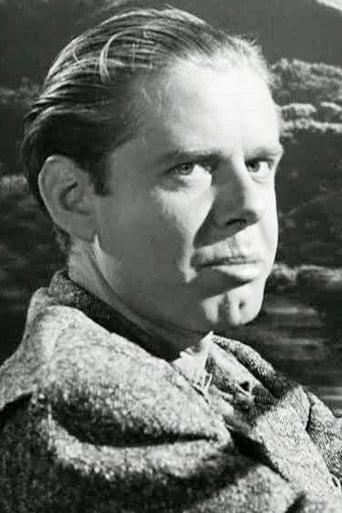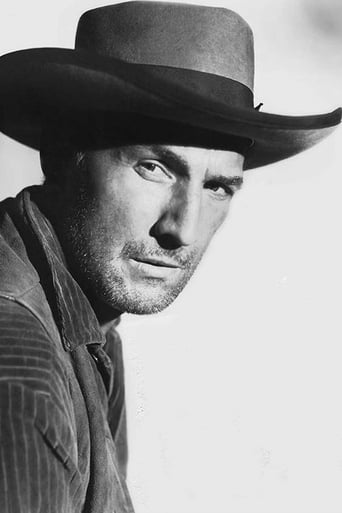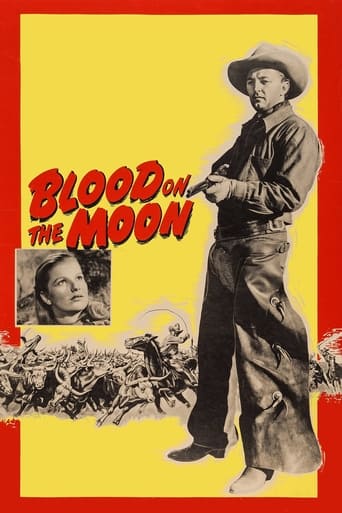
Down-and-out cowhand Jim Garry is asked by his old friend Tate Riling to help mediate a cattle dispute. When Garry arrives, however, it soon becomes clear that Riling has not been entirely forthright. Garry uncovers Riling's plot to dupe local rancher John Lufton out of a fortune. When Lufton's firecracker of a daughter, Amy, gets involved, Garry must choose between his old loyalties and what he knows to be right.
Similar titles
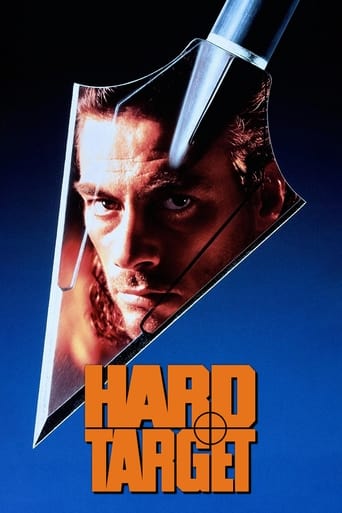
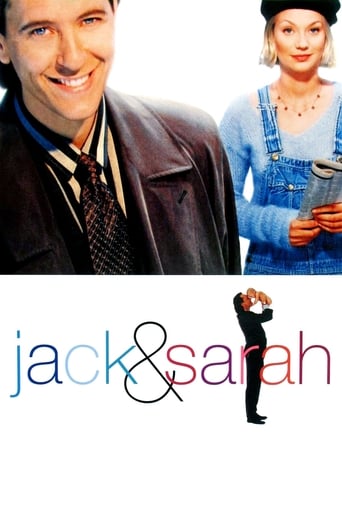
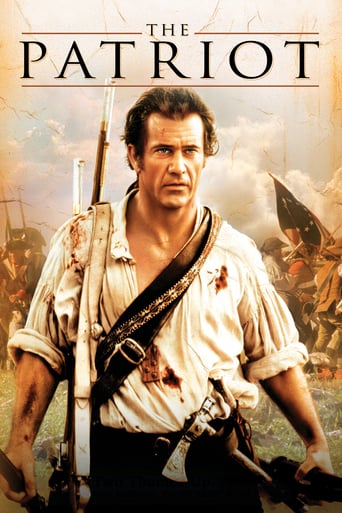
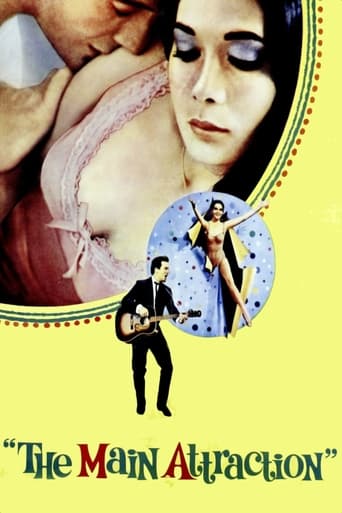
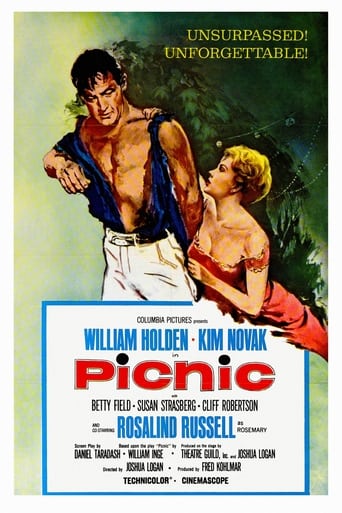
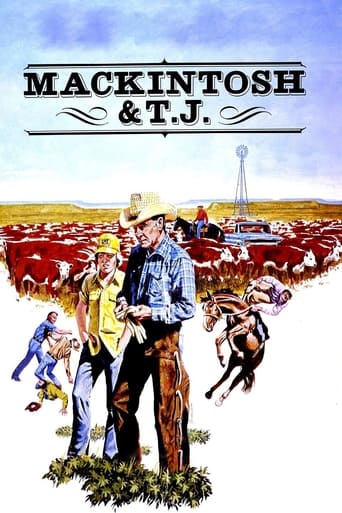
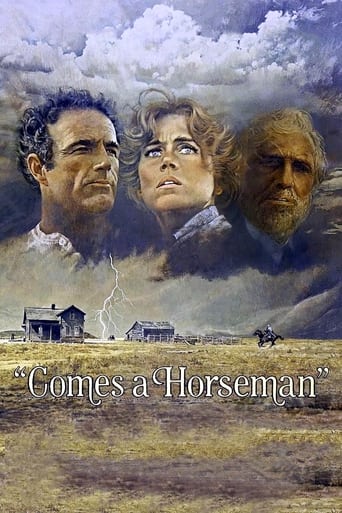
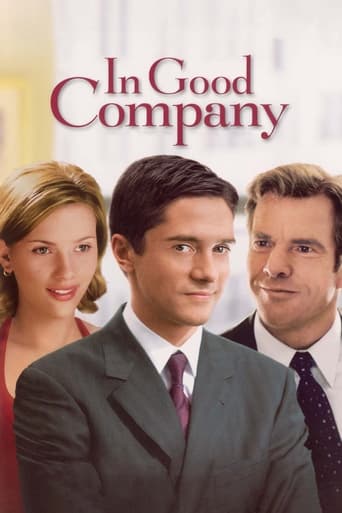
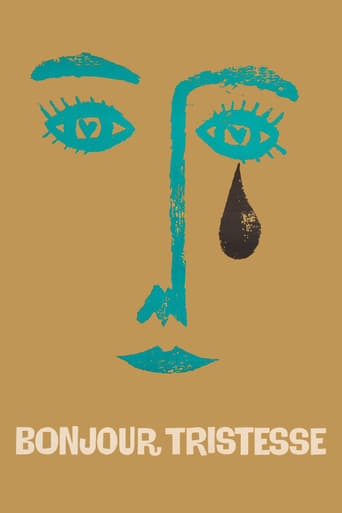
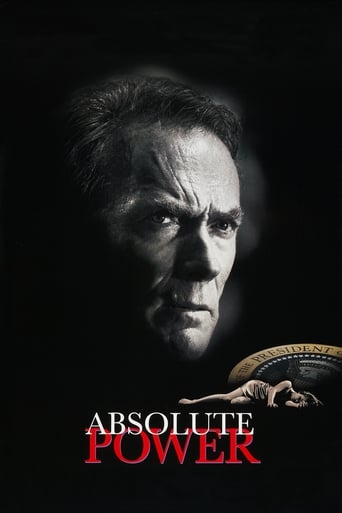
Reviews
Sadly Over-hyped
The film makes a home in your brain and the only cure is to see it again.
A movie that not only functions as a solid scarefest but a razor-sharp satire.
This is a small, humorous movie in some ways, but it has a huge heart. What a nice experience.
Long before her days as the noble but strong willed Miss Ellie on "Dallas" and with a stage career not yet legendary, Barbara Bel Geddes scored brief success in films. She scored an Oscar nomination as the "I" who "Remembered Mama" and got all tough with Robert Mitchum in this film noir western. When first seen, she's shooting at Mitchum, purposely missing but with intent of scaring him away. He shoots back, basically knocking her down, but when next seen, she knocks the hat off his head with a single shot, leaving him hiding the fact that he's petrified. Obviously, there are sparks, but Bel Geddes won't be putting down her rifle anytime soon as she deals with the corruption of fear mongering Robert Preston who uses Mitchum in his scheme to forge locales to sell him their cattle.While plots like this have turned up in westerns ever since the creation of the genre, never had it been done with such a psychological darkness. Film noir had been around for a few years and elements of the darkness at dawn under a western moon were turning up in westerns, most notably in "Pursued", a western thriller that Mitchum had made the year before. Robert Wise, a former film editor who added noir elements into the horror genre, now did the same thing here, and the results are successful, if not completely satisfying. Shadows in the snow this could have been called, with Preston a very subtle villain and Tom Tully and Phyllis Thaxter are very good as the father and sister whom Bel Geddes has toughened up to protect. Walter Brennan is also aboard as a local wise man who provides a moral guide for the developers characters.So how does, exactly, a standard western plot become film noir? The psychological degradation of seemingly decent characters, others having to take steps to bring the evil forces down by reaching into their own psyche, and anti-heroes who keep so much inside. Moody photography, a screenplay that goes deeper into the darkness inside all mankind, and a direction that moves the camera around like it was reading everybody's minds and often became the standing replacement where a character was speaking from. This genre hit its height with "The Furies" two years later, but "Blood on the Sun" successfully reveals the important elements that make film noir tick, western or not, and would be a great guide to filmmakers of the future.
Cowboy Robert Mitchum comes to help old friend Robert Preston, only to find himself in the middle of a war between Preston and rancher Tom Tully. He soon realizes his buddy might not be the good guy in this particular fight. Excellent shadowy western from director Robert Wise with touches of film noir. Mitchum is solid. Preston makes an interesting villain. Nice support that includes Walter Brennan, Charles McGraw, Frank Faylen, and Phyllis Thaxter. Barbara Bel Geddes plays Mitchum's love interest. The abrupt change in her character's personality is one of the film's weaker points. She starts out as hotheaded tomboy then, without explanation, turns into a sweet, sympathetic lady. Fistfight in a darkened bar between Mitchum and Preston is a highlight. Western fans will enjoy this one a lot.
This is one of a notable group of westerns, such as Colorado Territory (1949), and Pursued (1947), influenced by the then-fledgling film noir style. They introduce introspection and fatalism into the sagebrush mix, anticipating the psychological concerns of the 1950s. Inevitably shot in black and white (although Turner Television have apparently broadcast a colourised version of the present title - a fact that might make purists shudder), and with a greater preponderance of night-set scenes, the noir western replaced a family-friendly wide open prairie, previously peopled with cowboys in white or black hats and clear cut moralities, with a fresh genre of altogether different concerns, reflecting confusions and uncertainties.Director Robert Wise had previously made Curse Of The Cat People (1944) for Val Lewton, and would also helm Lady Of Deceit (1947), and The Set-Up (1949), respectively just before and after Blood On The Moon, so was already at home with the way of noir. He'd also been associated with Orson Welles - having been brought in to infamously 'finish off' The Magnificent Ambersons - and this influence can be seen in Blood On The Moon, especially in the saloon interiors, with their low angles and prominent low ceilings.Wise's 1948 western stars noir icon Robert Mitchum as Jim Garry, a man with a suitably dubious past, sent for by former friend Tate Riling (Preston Foster) to take partnership in a grazing rights scam and to provide a strong arm for $10,000. Riling hopes to secure payment for a lucrative army cattle contract while convincing local farmers that his intentions are strictly honourable, and running off the current suppliers. At first Garry grudgingly goes along with the plan but then realises that he is not comfortable with matters, all the while growing a romantic interest in Amy Lufton (Barbara Bel Geddes) the daughter of one of the cattle farmers.For my money, Blood On The Moon, while an excellent film, is not quite on the same level as the two other noir westerns mentioned above, having none of the haunting psychologies of Pursued (also starring Mitchum), nor the fatalism of Colorado Territory. But there are still many pleasures to be had here, not least a strong supporting cast that includes Walter Brennan and Charles McGraw as well as a splendidly duplicitous Foster who, in dark parallel of Garry's slow romance of Amy, feigns a love interest in her sister to oil along his malign plans.Ultimately, it is Garry's realisation of his erstwhile partner's slipperiness which turns him against him, as he discovers "I've seen dogs who wouldn't take you for a son." But it is Mitchum's marvellous playing of a man with the troublesome "conscience blowing down his neck," that's at the centre of the film, as he turns from hesitant moral acquiescence to doubt, onto guilt, into action. As others have remarked, Mitchum's characteristic 'stillness' as a noir actor, whereby he characteristically says or expresses little, but nevertheless suggests inner turmoil, is shown at its best here. Such depth and moral equivocation would (his complex performance in Red River the year before, notwithstanding) probably have been beyond the range of a John Wayne.I mention Wayne, particularly, since there is an interesting similarity between Blood On The Moon and Hawks' Eldorado, made a decade and half later. In both movies a gunfighter arrives by way of summons into a middle of dispute, and is bushwhacked by a woman for his pains. In the later movie Wayne's character makes a clear decision right away not to join one side before siding with the other. In Wise's work, Garry's process of realignment is much more slow and painful, but because of it, more human. And whereas Wayne enters the drama bolt upright on his horse, proud in his own self-esteem, we first see Garry caught in the rain, at night, bedding down within cluttered trees, streams and undergrowth - the uncomfortableness of which reflects the confusions in which he finds himself.
The concept of the "noir western" is unthinkable without Robert Mitchum. Mitchum, who started his career as a heavy in B westerns and went on to be hailed as the "soul of film noir" for his world-weary cynicism and cool, doomed aura, defined the hybrid genre in 1947 with PURSUED, then followed with BLOOD ON THE MOON. The plot is essential noir: a man down on his luck is summoned by an old partner and cut in on a big deal; when he finds out that the deal is crooked and his friend is an irredeemable louse, he has to decide whether to accept his slide into corruption or fight to maintain his honor. The scheme just happens to involve cheating a man out of his cattle herd instead of some urban racket. The cinematography is literal noir; at least half the scenes take place at night, in a murk that rather obviously symbolizes the difficulty of seeing anyone's true nature. None of the western clichés are here: there are no rowdy dance-halls or rip-snorting brawls or comical drunks, no steely sheriffs or white-hatted good guys. The mood is somber, tense and ambiguous, but the film does satisfy the requirements for a western: there are cattle stampedes, a savage fight, a gun battle and beautiful sweeping landscapes, including stunning scenes in a snow-bound pass, the white drifts sliced by the tracks of men and horses. All of the performances are restrained and natural. Barbara Bel Geddes and Phyllis Thaxter, as the daughters of the cattle baron targeted by the scheme, both avoid the glossy glamour that so often makes actresses look out of place in westerns. Bel Geddes is appealingly fresh, and does a good job with a character who starts out as a hostile spitfire in pants (she and Mitchum "meet cute" by shooting at each other) and then morphs into a gentle healer in a dress. Robert Preston is perfect as Riling, a smirking cad with an oily face and a plaid jacket; his former partner Jim Garry (Mitchum) sums him up with the classic line, "I've seen dogs that wouldn't claim you for a son." Walter Brennan adds seasoning as usual, this time poignant rather than comic. Mitchum makes a beautiful cowboy with his long hair and elegantly rugged attire, at once authentic (on seeing Mitch in costume Walter Brennan reportedly declared, "That is the goddamnedest realest cowboy I've ever seen!") and romantic. In one scene he confronts a gunman on a wide, dusty street and walks towards himthat's all he has to do, just walk towards him and the guy knows he's outclassed. (Mitchum's panther walk is one of the glories of cinemaI would love to watch a whole movie of nothing but Mitchum walking.) I don't think Jim Garry smiles once (though he comes close in a gentle scene where the heroine, tending to his injured hand, asks about his fight with Riling, and he answers, "It was a pleasure.") He conveys a profound inchoate sadness, but as always he uses dry humor to keep emotion at bay. He's contained, laconic, defended. Not merely stoic, he's strangely passive, willing to let things go; his strength is tinged with melancholy because he can "take it," but he also feels it. Lee Marvin (Mitchum's one-time co-star) said it well: "The beauty of that man. He's so still. He's moving. And yet he's not moving." Mitchum is mesmerizing because you sense so much going on behind the cool, impassive facade. It's partly his film-style acting, which happens under the surface, not on the surface. But under-acting can't fully account for his mystery. There's something fundamentally inaccessible, unknowable about Mitchum's characters, and this is what makes them so real. You never feel they are underwritten or inconsistent; instead you feel he's a whole and complex person who can never be fully explained. Despite his much publicized contempt for most of his work, Mitchum brings this tremendous gift to the slightest and shallowest of movies. BLOOD ON THE MOON, however, is worthy of him.
Top Streaming Movies











